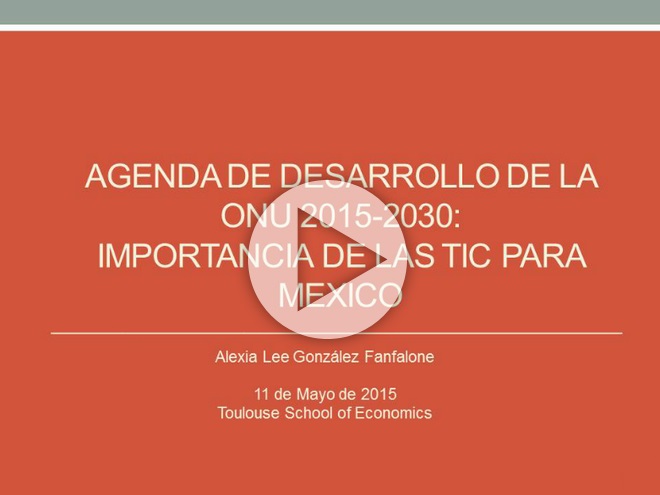Mexico Perspective: ICT Infrastructure
Click here for information in spanish.
Background
Information and communications technology (ICT) has become a vital tool for development, with mobile phone access being particularly important in rural areas. Internet access is an important way to help businesses innovate and grow, especially so for the Small and Medium Enterprises (SMEs) that dominate the Mexican economy. This is important across the developing world, and it makes particularly good economic sense in Mexico: investing a Peso in expanding broadband could give back 25 Pesos worth of benefits.
Developing countries are leapfrogging today’s rich world by going straight to mobile broadband access rather than investing in costly fixed lines, but there is still a big difference in levels of service. The ‘digital divide’ is more evident in Mexico than the average developing country, with less than 12% of citizens having mobile broadband access in 2013, in contrast to 75.1% in developed economies (in 2014, the average penetration for all developing countries was 21.1%).
Mexico is around the average for Latin America for overall access to the Internet. About 31% of households had Internet access in 2013. This gave access to over 43% of individuals, but this is lower than the figures for Colombia (52%) or Chile (over 66%). However, 85% of Mexicans have a mobile phone, so mobile broadband is well placed to deliver Internet access to rural and remote areas.
Although fixed broadband connections have their role in towns and cities, mobile broadband can give citizens across the country access to the Internet, including those in rural areas. A World Bank study in 2009 estimated that a 10% increase in broadband penetration in low- and medium-income countries boosted GDP growth by 1.34%.
The benefits it brings are enormous, but its very importance makes it difficult to take full account of its impact, which may be greater than captured in such an analysis. For example, broadband access is not just about economic growth, but also social inclusion. This can help transform societies, rather than simply boosting the growth of GDP.
Providing a mobile broadband service can be very cost effective, since it can cost only a third as much as connecting people via fixed lines. Increasing penetration to 60% by 2030 (from 11.8% in 2013) is a very smart target, delivering benefits of 25 Pesos for each Peso invested. But mobile and fixed broadband connections are complementary, and mobile networks need a backbone of fiber connections between regions. For Mexico, expanding fixed broadband coverage to 20% is also a very cost-effective target.
Expanding mobile broadband to cover 60% of the population is a vast project, which would have to bring 70 million subscribers online in the next 15 years. The costs would be large – nearly $30 billion – but so would the growth opportunities. The value of the boost to GDP would be about $800 billion, which amounts to over $5,300 at current value for every Mexican citizen between now and 2030.
The Mexican government has been well aware of the importance of ICT to the economy and has introduced structural reform to the sector, starting with the creation of a new Communications Regulator in 2013. In the same year, the government launched the National Digital Strategy, and in 2014 a new sector Law came into force.
The authorities now have to enforce the regulations (in the new Law) that remove the barriers to expansion of broadband coverage, while also managing the efficient allocation of the available wireless spectrum to facilitate the deployment of 3G and 4G networks.


